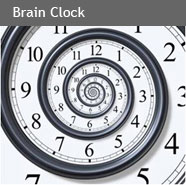Friday, October 30, 2009
Thursday, October 29, 2009
Brief history of neuroscience
http://the-mouse-trap.com/2009/10/29/a-brief-history-of-neuroscience/
Kevin McGrew PhD
Educational/School Psych.
IAP (www.iapsych.com)
Sent from KMcGrew iPhone (IQMobile). (If message includes an image-
double click on it to make larger-if hard to see)
Monday, October 26, 2009
Meditation and attention
improved cognitive functioning found after using one of the various
brain fitness programs isn't due to the program(s) resulting in
subjects getting "focused in a zone" much like meditation.
http://mindblog.dericbownds.net/2009/10/meditation-training-can-enhance.html
Kevin McGrew PhD
Educational/School Psych.
IAP (www.iapsych.com)
Sent from KMcGrew iPhone (IQMobile). (If message includes an image-
double click on it to make larger-if hard to see)
Sunday, October 25, 2009
Cup(s) of Joe good for your brain?
http://www.sharpbrains.com/blog/2009/10/24/does-coffee-boost-brain-cognitive-functions-over-time/
Kevin McGrew PhD
Educational/School Psych.
IAP (www.iapsych.com)
Sent from KMcGrew iPhone (IQMobile). (If message includes an image-
double click on it to make larger-if hard to see)
Friday, October 23, 2009
Time of the essence
http://www.mindhacks.com/blog/2009/10/time_is_of_the_essen.html
Kevin McGrew PhD
Educational/School Psych.
IAP (www.iapsych.com)
Sent from KMcGrew iPhone (IQMobile). (If message includes an image-
double click on it to make larger-if hard to see)
ResearchBytes 10-23-09: Rhythm production and reading/dyslexia
Dellatolas, G., Watier, L., LeNormand, M. T., Lubart, T., & ChevrieMuller, C. (2009). Rhythm Reproduction in Kindergarten, Reading Performance at Second Grade, and Developmental Dyslexia Theories. Archives of Clinical Neuropsychology, 24(6), 555-563.
Temporal processing deficit could be associated with a specific difficulty in learning to read. In 1951, Stambak provided preliminary evidence that children with dyslexia performed less well than good readers in reproduction of 21 rhythmic patterns. Stambak's task was administered to 1,028 French children aged 5–6 years. The score distribution (from 0 to 21) was quasi-normal, with some children failing completely and other performing perfectly. In second grade, reading was assessed in 695 of these children. Kindergarten variables explained 26% of the variance of the reading score at second grade. The Stambak score was strongly and linearly related to reading performance in second grade, after partialling out performance on other tasks (oral repetition, attention, and visuo-spatial tasks) and socio-cultural level. Findings are discussed in relation to perceptual, cerebellar, intermodal, and attention-related theories of developmental dyslexia. It is concluded that simple rhythm reproduction tasks in kindergarten are predictive of later reading performance.
Technorati Tags: psychology, educational psychology, school psychology, special education, neuropsychology, neuroscience, rhythm, rhythm production, dyslexia, mental timing, IQ Brain Clock

Tuesday, October 20, 2009
More on neural enhancement
http://gaggio.blogspirit.com/archive/2009/10/20/tweaking-your-neurons.html
Kevin McGrew PhD
Educational/School Psych.
IAP (www.iapsych.com)
Sent from KMcGrew iPhone (IQMobile). (If message includes an image-
double click on it to make larger-if hard to see)
Brain blog carnival: Encephalon 77
Kevin McGrew PhD
Educational/School Psych.
IAP (www.iapsych.com)
Sent from KMcGrew iPhone (IQMobile). (If message includes an image-
double click on it to make larger-if hard to see)
Time Doc Bytes: Two new exciting brain-based brain clock research studies
The first used a rare procedure (implanting electrodes in Broca's area of the brain) provides useful information on brain mechanisms involved in the speed, timing and sequence of language behaviors.
The second, based on research with primates, is very intriguing as it suggest the use of a "brain stamp" mechanism for keeping time of events. Interestingly, and consistent with considerable research posted at this blog before, the focus was on certain brain regions/mechanisms (prefrontal cortex; straitum; dopamine), and implications were mentioned for Parkinson's disease treatment.
Technorati Tags: pscyhology, educational psychology, school psychology, developmental psychology, cognition, intelligence, brain clock, mental timing, temporal processing, IQ Brain Clock, prefrontal cortex, language, Brocas area

Tuesday, October 06, 2009
Personal post: Life is GRAND in MN!!!!!!!!!!!!!!!!!
Click here for explanation.
Technorati Tags: Minnesota, Vikings, Twins

Sunday, October 04, 2009
Personal choice and ethical/moral issues in self-cognitive enhancement

Interesting topic (personal choice, ethics, and moral issues in self-cognitive enhacement) discussed in a new Neuroethics article (Automony and coercion in academic "cognitive enhancement" using methlphenidate: Perspective of key stakeholders)
Abstract
There is mounting evidence that methylphenidate (MPH; Ritalin) is being used by healthy college students to improve concentration, alertness, and academic performance. One of the key concerns associated with such use of pharmaceuticals is the degree of freedom individuals have to engage in or abstain from cognitive enhancement (CE). From a pragmatic perspective, careful examination of the ethics of acts and contexts in which they arise includes considering coercion and social pressures to enhance cognition. We were interested in understanding how university students, parents of university students, and healthcare providers viewed autonomy and coercion in CE using MPH. We found that perspectives converged on the belief that CE is a matter of personal and individual choice. Perspectives also converged on the existence of tremendous social pressures to perform and succeed. Parents emphasized personal responsibility and accountability for CE choices, and expressed feelings of worry, sadness and fear about CE. Students emphasized the importance of personal integrity in CE, expressed tolerance for personal choices of others, and highlighted the challenge that CE poses to maintaining one’s personal integrity. Healthcare providers emphasized the health consequences of CE. These results illustrate: (1) the importance of understanding how context is viewed in relation to perspectives on autonomous choice; (2) the limitations of individualistic libertarian approaches that do not consider social context; and (3) the ethical implications of public health interventions in a value-laden debate where perspectives diverge.
Technorati Tags: psychology, neuropsychology, neurotechnology, neurosicence, neurology, cognition, intelligence, brain fitness, cognitive enhancement





